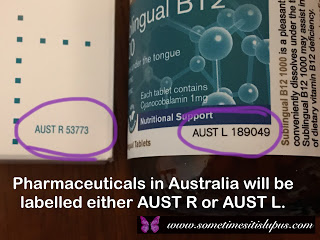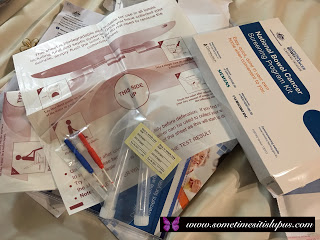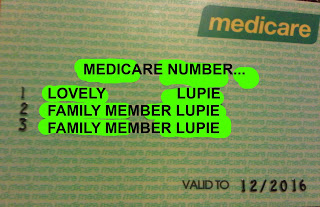
It may be a while before we find out what (if any) services are available to people who are disabled by lupus
and other chronic illnesses under the new Disability Services Australia legislation. So, I thought it might be good to have a wrap-up of what Government support is already available.
Income Support
For those of us who can't work because of lupus, a Disability Support Pension is available (but if you have a partner who earns too much, you can't get this.)
The amount of pension paid is reduced for people who have other sources of income. So it's possible to work part-time (up to 12 hours per week), and still receive a part-pension.
Even a part-pension has the benefit of a Pension card. A Pension card can help gain all sorts of concessions on medical and other services as well.
For those who do have incomes, but low incomes, a Health Care card can make some medical and related services, and Pharmaceutical Benefits Scheme (PBS) medications cheaper.
Medical and Allied Health Services
Many doctors will bulk bill Medicare for services for people on Pension or Health Care cards. If your doctor doesn't bulk bill, the Medicare rebate will be higher.
For those who don't have a concession card, there is a Medicare Safety Net. After a family has spent a set amount (the amount changes from year to year), the Safety Net cuts in and a number of medical services will be cheaper for the rest of the year.
People with chronic illnesses will be able to get some Allied Health services paid for by Medicare. Discuss a GP Management plan with your General Practitioner. Your doctor can refer you to up to two allied health professionals, with Medicare assistance, under a Team Care Agreement as part of managing your condition. (There is a limit of five allied health services/appointments per year under this program, and sometimes there will be a small out-of-pocket fee.)
Medication
Medication is always expensive for people with lupus.
In Australia, the Pharmaceutical Benefits Scheme limits the upper cost of most prescription medications. Those of us with Pension cards or Health Care cards, have an extra discount, bringing the cost of each medication to a bit over $5.00.
Like Medicare, the PBS has a Safety Net. After a set number of prescriptions for a family, people on concession cards get their PBS medications free - and people without concession cards will have their cost of medications reduced to the concession level.
If you take more than 12 medications, you may be eligible to have a free Med Check - ie your pharmacist can do a review of your medications, how they're taken, etc. Not all pharmacists do this.
References:
Australian Government Department of Health and Ageing Chronic Disease Management Medicare Items: http://www.health.gov.au/internet/main/publishing.nsf/Content/mbsprimarycare-factsheet-chronicdisease.htm
Australian Government Department of Human Services Chronic Disease Management Plan: http://www.humanservices.gov.au/customer/services/medicare/chronic-disease-management-plan
Australian Government Department of Human Services Concession and Health Care Cards: http://www.humanservices.gov.au/customer/subjects/concession-and-health-care-cards
Australian Government Department of Human Services Chronic Medical Condition Assistance: http://www.humanservices.gov.au/customer/subjects/chronic-medical-condition-assistance
Australian Government Department of Human Services Disability Support Pension: http://www.humanservices.gov.au/customer/services/centrelink/disability-support-pension
Australian Government Department of Human Services Medicare Safety Net: http://www.humanservices.gov.au/customer/services/medicare/medicare-safety-net
Australian Government Department of Human Services MedsCheck Program: http://www.humanservices.gov.au/customer/services/medicare/medscheck-program
Australian Government Department of Human Services Pharmaceutical Benefits Scheme: http://www.humanservices.gov.au/customer/services/medicare/pharmaceutical-benefits-scheme












